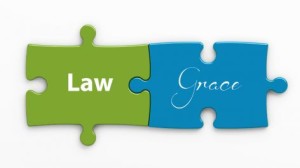 When grace replaced the law, sin was forgiven for all time. Every type of sin was no longer under the penalty of the law. There was no sin that was too hideous for God to forgive. Addiction was included in this list. Addiction is a state where a person is consumed by and focused on one pleasure giving substance or process. It is a sinful, selfish and broken state to be trapped in, but it is forgiven by the grace of God. There are those who insist that addiction is inexcusable, but through the eyes of grace, an addict is beautiful and forgiven.
When grace replaced the law, sin was forgiven for all time. Every type of sin was no longer under the penalty of the law. There was no sin that was too hideous for God to forgive. Addiction was included in this list. Addiction is a state where a person is consumed by and focused on one pleasure giving substance or process. It is a sinful, selfish and broken state to be trapped in, but it is forgiven by the grace of God. There are those who insist that addiction is inexcusable, but through the eyes of grace, an addict is beautiful and forgiven.
Addiction is sinful because it is destructive. It does not do any good for anyone. Any person who is addicted understands this on some level, even if they are not totally conscious of it. The fact that they continue with their addiction despite this awareness is what makes it sinful. Grace is bigger than the sinful nature that gives way to addiction and it is capable of forgiving it.
Addiction is selfish in nature. The person who is addicted is only thinking of themselves when they are participating in their addiction. The pleasure they receive from their addiction is completely self serving. And it serves a person’s worse nature while defeating their better nature. Addiction damages a person’s personal relationships, reputation, finances and health, yet they selfishly still pursue it. Grace is big enough to forgive this selfishness as well and wipe the slate clean.
And lastly, addiction indicates brokenness. People develop addictions in order to cope with life. Addiction is obviously not a sustainable coping mechanism. It is an unhealthy one that does more harm than it does good. It allows a person to escape rather than confronting their problems. Grace came to do a lot of things, not the least of which was forgive brokenness. Grace offers the broken compassion and a soft place to fall.
